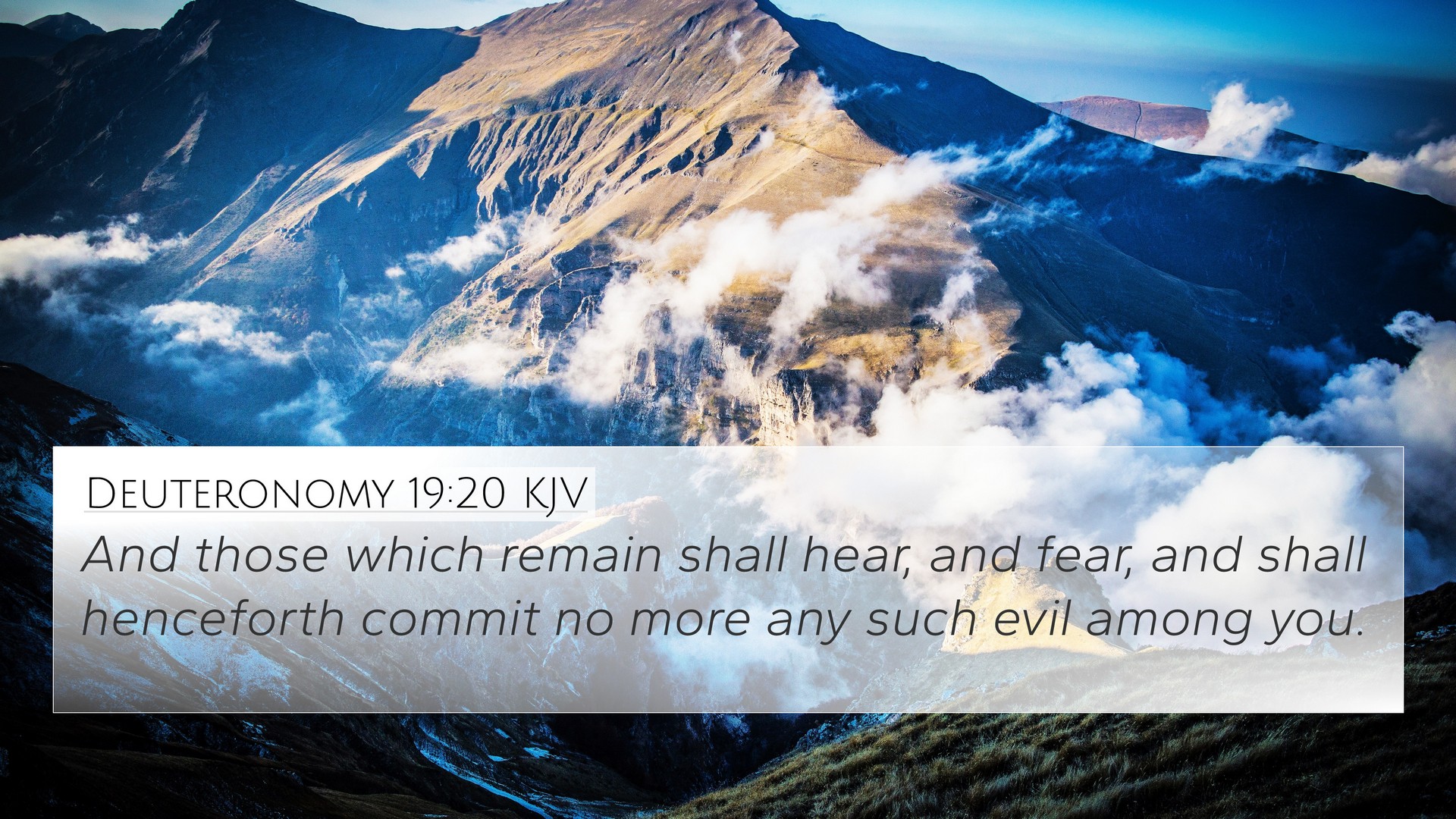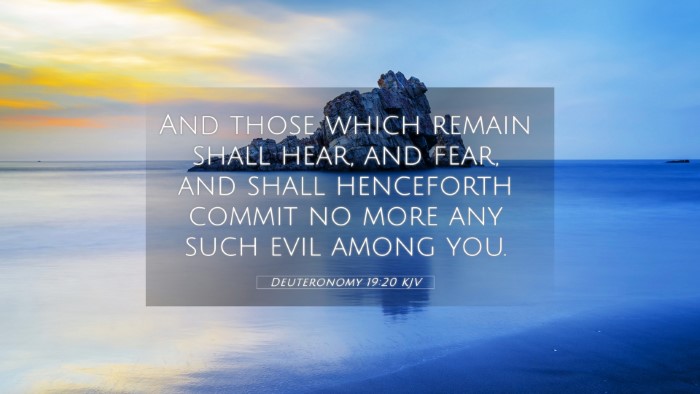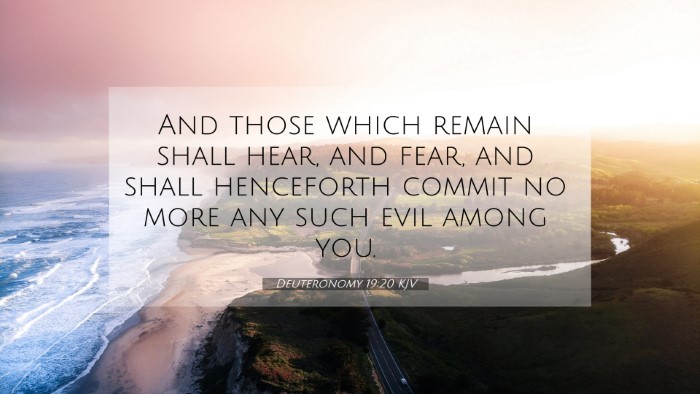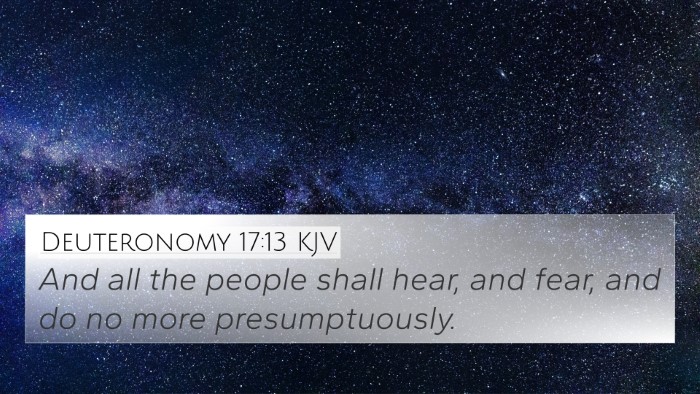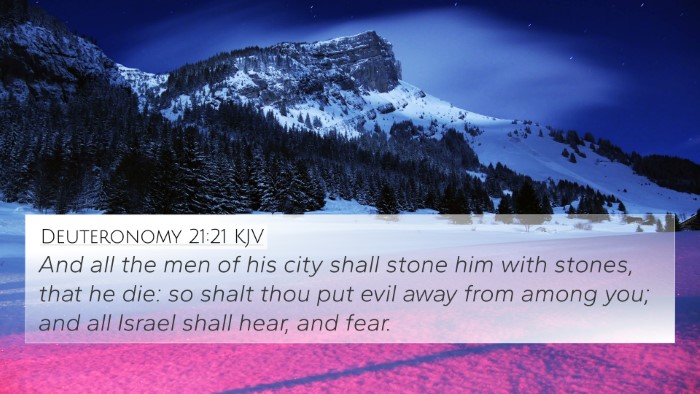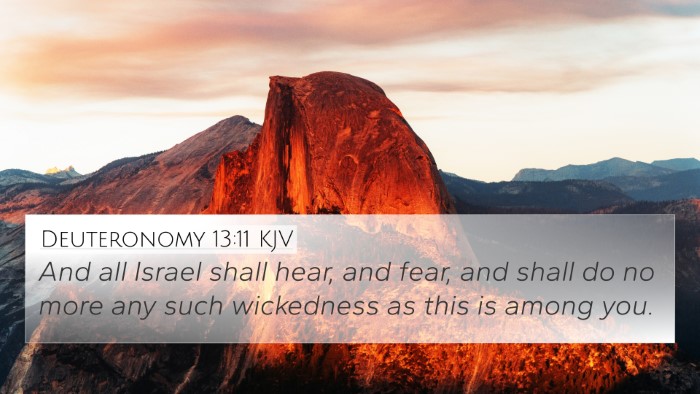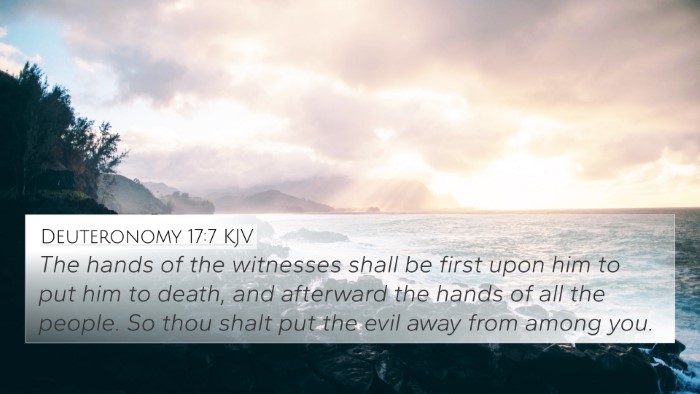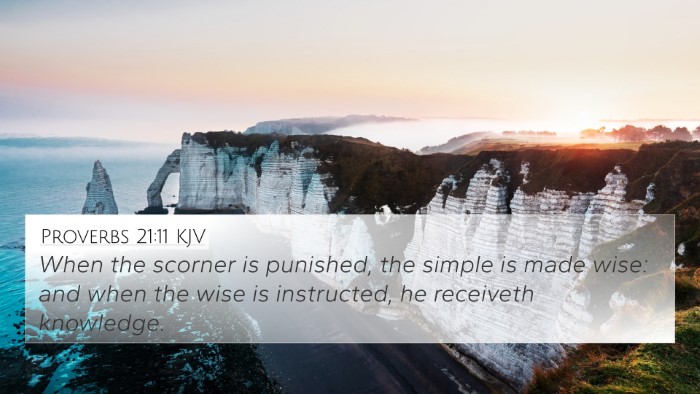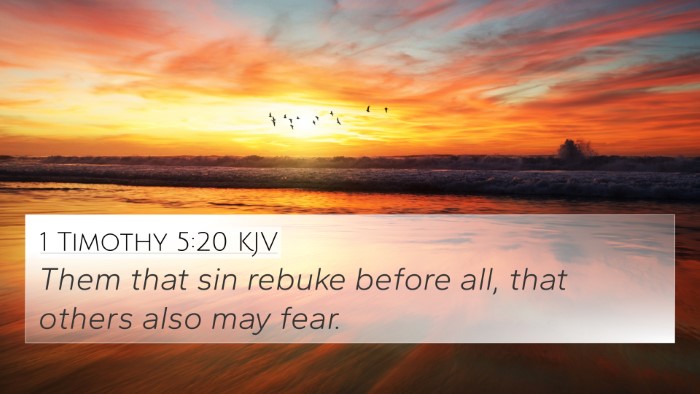Understanding Deuteronomy 19:20
Deuteronomy 19:20 reads: "And those which remain shall hear, and fear, and shall henceforth commit no more any such evil among you." This verse is part of the regulations concerning cities of refuge and the consequences of bearing false witness. It emphasizes the importance of community justice and the need for accountability among the people of Israel.
Verse Meaning and Interpretation
In this verse, we observe the consequences faced by witnesses who have testified falsely against an individual, leading to a potential miscarriage of justice. The intention behind these stipulations is to instill a sense of fear and reverence for the law, discouraging future transgressions.
Insights from Various Commentaries
-
Matthew Henry:
Henry emphasizes the necessity of maintaining judicial integrity. He notes that the punishment of false witnesses serves as a deterrent to others who might consider similar acts of deceit.
-
Albert Barnes:
Barnes highlights that the remaining witnesses’ awareness of the severe consequences would instill a collective fear that would help maintain moral standards among the community, thereby promoting justice.
-
Adam Clarke:
Clarke discusses the theological implications of community behavior as a reflection of divine justice. He elucidates that the fear generated by witnessing justice served can lead to a more righteous society.
Connections to Other Bible Verses
This verse can be linked to other scriptural texts that discuss themes of justice, truth, and witness. Below are Bible cross-references that relate to Deuteronomy 19:20:
- Exodus 20:16 - "You shall not bear false witness against your neighbor."
- Proverbs 19:5 - "A false witness will not go unpunished, and he who breathes out lies will not escape."
- Matthew 18:15-17 - Instructions on confronting a brother who sins and how to deal with false witnesses within the church community.
- 1 Timothy 5:19 - "Do not admit a charge against an elder except on the evidence of two or three witnesses."
- Hebrews 10:31 - "It is a fearful thing to fall into the hands of the living God," highlighting the severe consequences of sin.
- James 5:16 - Encouragement to confess sins to one another and pray for one another, relating to the importance of truthfulness in testimony.
- Deuteronomy 17:6 - "On the evidence of two or three witnesses, the one who is to die shall be put to death; a person shall not be put to death on the evidence of one witness."
Thematic Connections
The themes in Deuteronomy 19:20 reflect broader scriptural motifs that include:
- Justice and fairness in legal proceedings.
- The communal responsibility to uphold truth.
- Fear as a motivational factor in maintaining law and order.
- The role of accountability in a covenant community.
Tools for Bible Cross-Referencing
For those interested in further study, employing tools for Bible cross-referencing is essential. The following resources can facilitate deeper understanding:
- Bible Concordance: Helps in finding themes and verses across the Bible.
- Bible Cross-Reference Guide: Assists in connecting scriptures thematically.
- Cross-Reference Bible Study: Methods that engage with verses in relation to one another.
- Bible Chain References: Following a thematic thread through multiple scriptures.
Conclusion
Understanding Deuteronomy 19:20 within the context of its surrounding verses and its thematic connections allows for a richer comprehension of Biblical justice and truth. By exploring the relationships between various scriptures, we can see how the call to integrity and accountability permeates throughout the Bible, inviting believers to reflect on their own actions and the principles governing their community.
